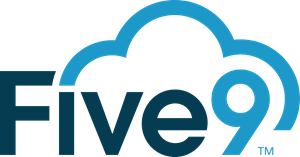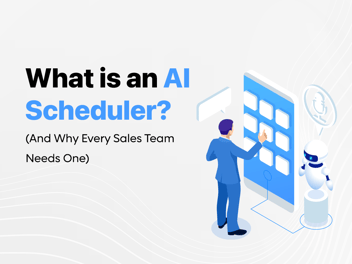Key Concepts in AI Scheduling

AI schedulers are reliable 24/7 assistants who can seamlessly manage your schedule, coordinate meetings, and ensure nothing slips through the cracks. These are game-changers in modern time management.
Artificial intelligence algorithms power optimization processes across various industries. From healthcare to finance, retail to education, scheduling automation is making waves, revolutionizing how businesses manage appointments and streamline operations.
In the age of digital transformation, AI automation has become widely accepted - spreading its influence far and wide. This has streamlined mundane scheduling tasks into efficient, automated processes.
Let's dive deeper into AI scheduling and explore the key concepts that drive its success across industries.
Calendar Assistant
One key concept behind AI schedulers is their role as calendar assistants. AI is more than powerful enough to analyze scheduling preferences, prioritize tasks, and optimize time management.
With AI technology, calendar assistants can:
- Automate Scheduling: Uses calendar availability and preferences to autonomously schedule appointments, meetings, and events, eliminating manual tasks and saving time.
- Coordinate Time Zones: Seamlessly manage appointments across global teams and clients, overcoming time zone differences for seamless scheduling.
- Provide Smart Suggestions: Offer intelligent meeting time suggestions based on availability, preferences, and past scheduling, optimizing productivity and avoiding conflicts.
- Handle Rescheduling: Efficiently deal with conflicts or cancellations by handling rescheduling tasks, sending notifications, and updating calendars as needed.
These assistants also seamlessly integrate with existing calendar platforms, such as Google Calendar or Microsoft Outlook, to provide personalized scheduling solutions. Features like these empower businesses to make the most of their time and resources.
Power Calendar
Power calendar is an AI scheduling concept that enhances scheduling speed and accuracy. Aside from smart scheduling and rescheduling, power calendar capabilities elevate AI schedulers in other ways as well:
- Personalized Insights: AI-powered calendars provide recommendations based on past scheduling behavior and preferences. Learning from user interactions helps anticipate scheduling needs and offers tailored suggestions to enhance productivity.
- Integration Capabilities: Seamlessly works with other tools and platforms. This integration makes the automatic synchronization of schedules possible and enhances collaboration among team members.
- Data-driven Decision-making: AI schedulers use historical data and performance metrics to identify trends, optimize scheduling processes, and improve efficiency over time. Through actionable insights, they empower users to make informed decisions and drive organizational success.
It's clear that AI-powered calendars go beyond basic scheduling tools, intelligently managing appointments, events, and tasks.
AI Calendar

Meetings are a constant part of workplace life, with employees burning up nearly five hours per week scheduling them. Unlike traditional calendars, AI-powered calendars can leverage machine learning to automate scheduling tasks and optimize meeting times—saving teams time and effort.
Imagine a busy medical practice where doctors need to schedule appointments with patients efficiently while ensuring adequate time for each consultation. With an AI-powered calendar, doctors can input patient preferences and availability.
This allows the system to suggest optimal appointment times based on factors such as appointment type, duration, and urgency. Streamlining the scheduling process not only speeds up the process but also maximizes convenience and minimizes wait times for patients.
Scheduling Software

Scheduling software is specifically tailored to meet the unique needs of businesses and organizations.
An important feature of scheduling software is its ability to automate appointment booking, meeting coordination, and task assignment. This tool identifies scheduling requirements, preferences, and constraints to suggest the best scheduling solutions.
Additionally, scheduling software offers customizable scheduling templates and workflows, allowing users to define their own scheduling processes and automate routine tasks. This flexibility enables organizations to streamline their scheduling workflows and adapt to changing scheduling needs over time.
Real-Time Scheduling
How does real-time scheduling work? Traditional scheduling methods, like in-person queues and phone bookings, often rely on static schedules and manual adjustments. Real-time scheduling makes use of artificial intelligence to adapt schedules on the fly based on changing circumstances.
Here's how AI enables real-time scheduling:
- Continuous Data Analysis: AI schedulers continuously analyze real-time data streams, including user preferences, availability, and scheduling constraints. This quickly identifies scheduling opportunities and makes adjustments as needed.
- Predictive Analytics: AI algorithms use predictive analytics to anticipate scheduling needs and trends based on historical data and patterns. Forecasting future scheduling requirements allows AI schedulers the ability to proactively adjust schedules for maximum efficiency.
- Adaptive Algorithms: AI scheduling employs adaptive algorithms that dynamically adjust priorities and strategies based on real-time feedback and changing conditions. This adaptive approach helps respond to unexpected events or disruptions, ensuring schedules remain optimized and up-to-date.
- Automated Decision-making: Automation streamlines decision-making processes, allowing real-time scheduling adjustments without human intervention. Through predetermined criteria, AI schedulers can autonomously optimize scheduling outcomes with organizational policies and constraints.
Real-time scheduling powered by AI enables organizations to respond quickly to changing circumstances. Scheduling AI can dynamically adapt schedules to meet changing scheduling needs.
Scheduling Assistant
Manual scheduling methods typically demand time-consuming coordination and oversight. AI-powered scheduling assistants automate the scheduling processes and provide intelligent recommendations.
Instead of manually reviewing calendar availability and coordinating schedules, leaders can rely on an AI scheduling assistant. They analyze the manager's calendar, identify available time slots, and suggest optimal meeting times based on priority and participant availability.
Additionally, the scheduling assistant can send meeting invitations, track RSVPs, and send reminders, streamlining the entire scheduling process and allowing the executive to focus on more important tasks.
Optimization of Schedule
Schedule optimization involves the strategic arrangement of tasks, activities, or events to maximize efficiency and minimize resource waste. As with previous key concepts, AI schedulers employ various algorithms and techniques to achieve this optimization.
Prior to implementation, AI schedulers often simulate different scheduling scenarios to identify the most ideal solution. This minimizes the risk of poor scheduling decisions and enables organizations to achieve their goals more effectively.
Natural Language Processing

Natural Language Processing (NLP) enables AI schedulers to understand and process human language for scheduling purposes with remarkable accuracy and efficiency.
Using NLP, AI schedulers function as follows:
- Text Interpretation: AI schedulers use NLP algorithms to understand text-based inputs like emails or messages. Analyzing the text's structure, context, and meaning enables AI to extract relevant scheduling information.
- Intent Recognition: NLP algorithms identify the 'intention' behind user messages, which assists AI in understanding schedule requests, preferences, and instructions. Whether it's scheduling a meeting or canceling a reservation, NLP enables accurate interpretation of user intent.
- Entity Extraction: AI can extract key information from user messages, such as dates, times, and locations. It can then understand scheduling specifics and accurately fill in scheduling fields.
- Language Understanding: NLP algorithms allow AI schedulers to process human language naturally. Despite complex language structures, NLP ensures accurate interactions with users through syntax, semantics, and setting.
Conversational AI is also powered by NLP. It combines these capabilities with foundation models and machine learning algorithms to facilitate natural and intuitive communication between users and AI schedulers.
The Bottom Line
Understanding the key concepts in AI scheduling unveils the remarkable capabilities of AI-powered schedulers in streamlining and optimizing scheduling tasks, no matter what the industry. From text interpretation to language understanding, these concepts pave the way for more efficient, accurate, and user-friendly scheduling processes.
Embracing these key concepts will be fundamental in staying ahead in the dynamic landscape of scheduling automation.
About the Author
Nick Saraev
A programmer by trade, Nick Saraev is a freelance writer and entrepreneur with a penchant for helping people achieve their business goals. He's been featured on Popular Mechanics & and Apple News and has founded several successful companies in e-commerce, marketing, and artificial intelligence. When he's not working on his latest project, you can find him hiking or painting.


.png?width=512&height=512&name=guru%20(1).png)

.png?width=199&height=109&name=salesforce-logo1-removebg-preview%20(1).png)


.webp?width=716&height=569&name=banner-img%20(1).webp)


.png?width=352&name=aysfh89oda%20(1).png)
%20(1).png?width=352&name=ease%20of%20use%20copy%205%20(1)%20(1).png)